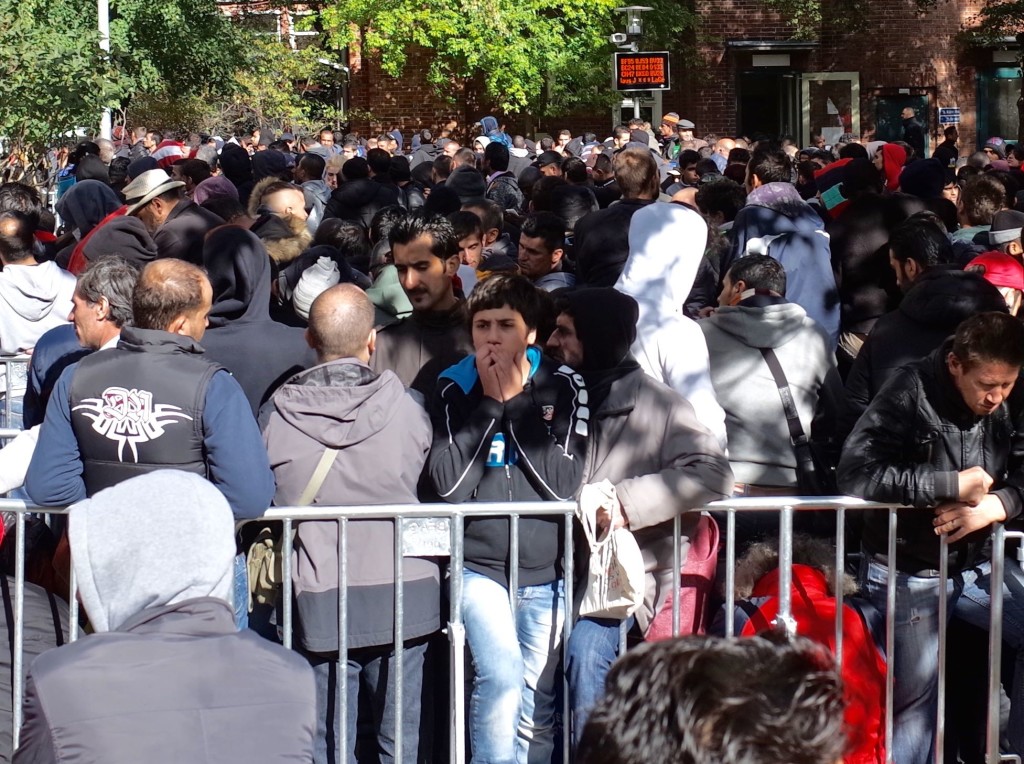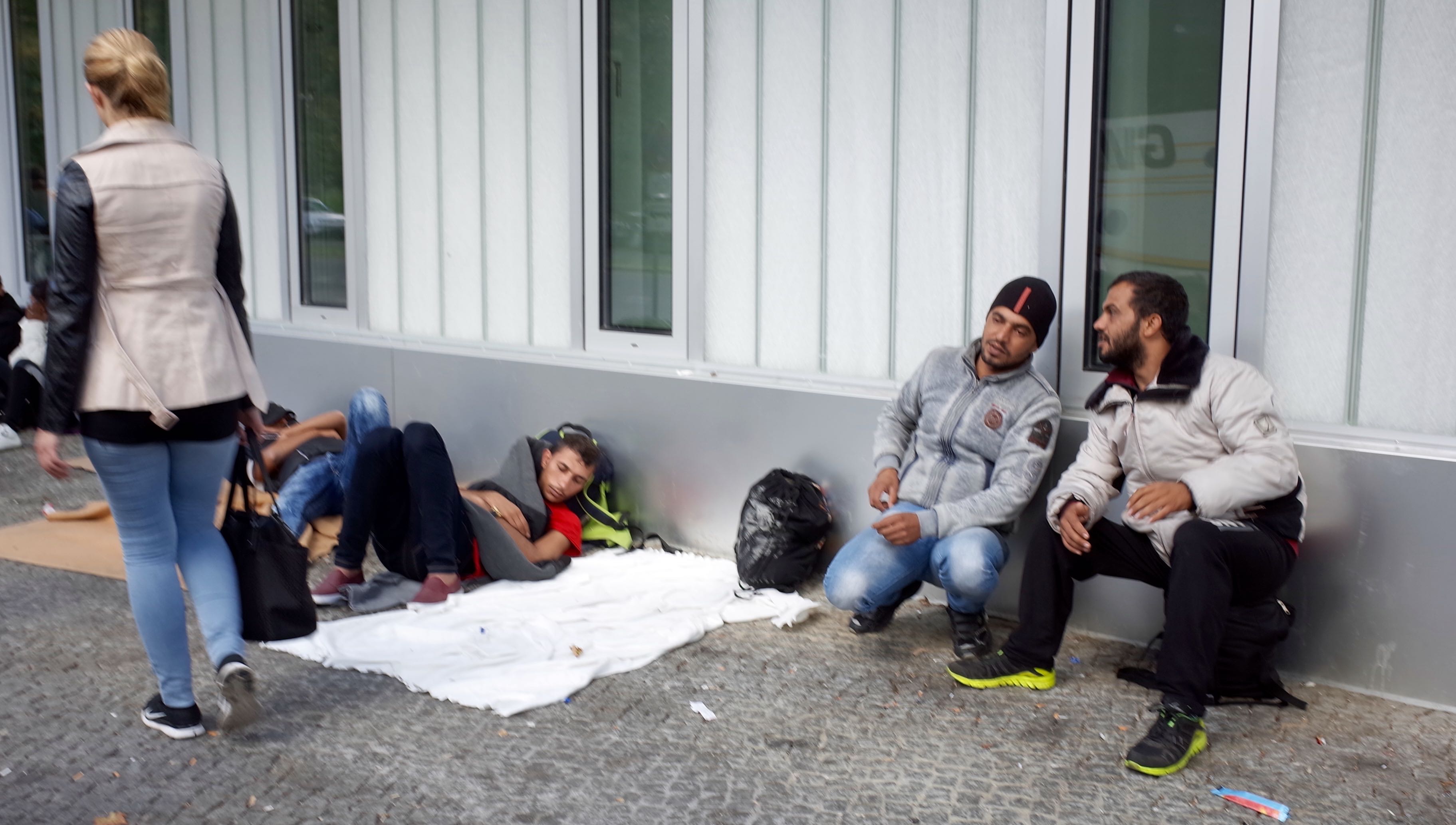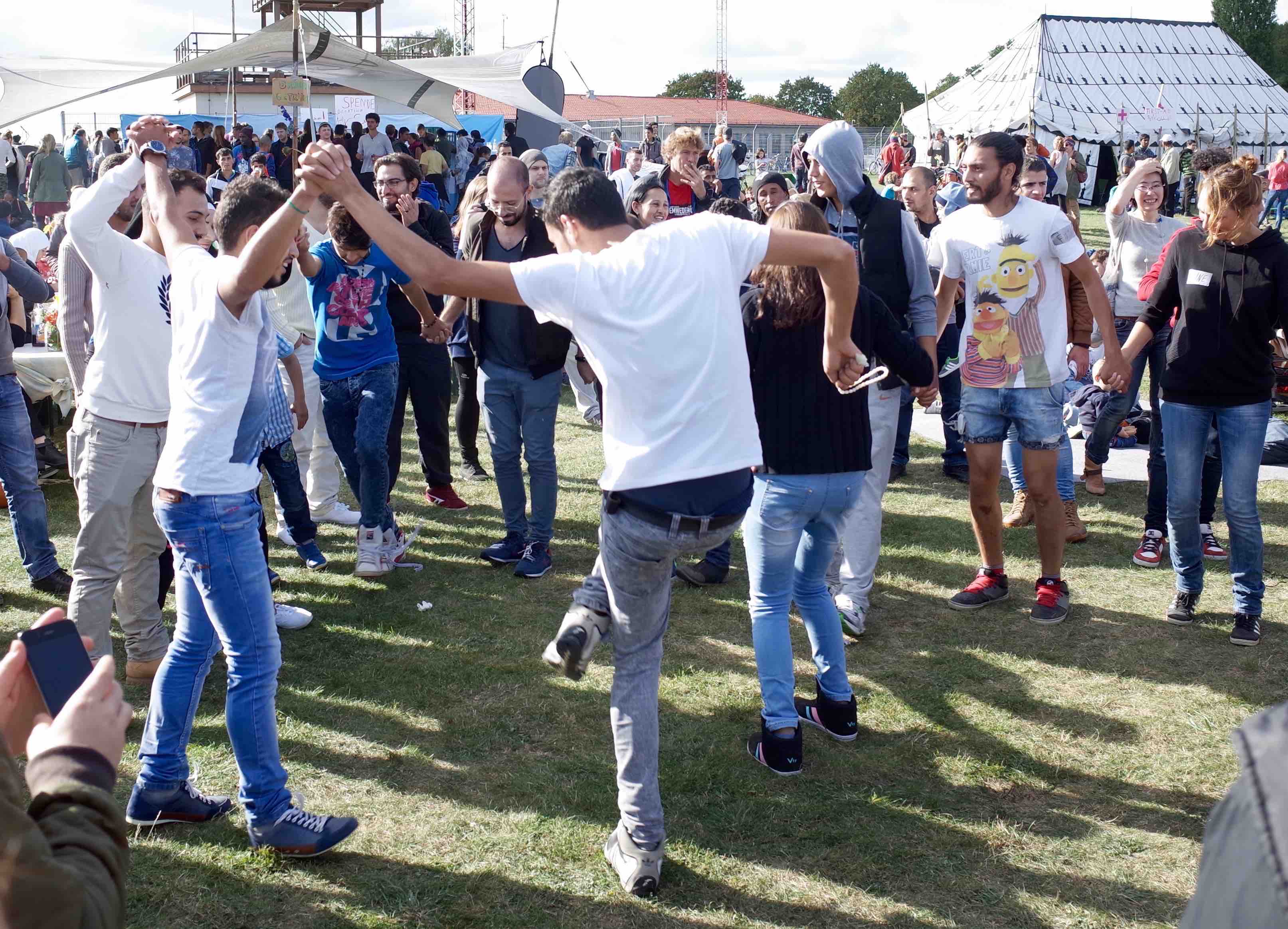Cologne Assaults: A Distorted and Dangerous Debate of Stereotypes
It’s too simple to explain the serious crimes against women in Cologne this past New Year’s eve by the assailants’ religion, rather than other factors. Cultural arguments are easily used by the far-right to punish refugees collectively for the serious crimes of a few.

Earlier this week, in a strongly worded editorial, The New York Times wrote: ‘Europe must also find a way to cope with a problem that has been largely ignored until now: sexual aggression by refugees from countries where women do not have the same freedoms as in Europe… A broader challenge is how to acculturate large numbers of mostly young, Muslim men to the sexual and gender norms of Europe’.
It is facile to say roundly that the Cologne attacks are about ‘refugees who don’t know our culture’ or ‘Muslims’, or to discredit the whole project of welcoming refugees in Germany. The particulars emerging from the case suggest a much more nuanced picture.
The following details shake things up:
Who are the attackers?
Most of the 19 men so far identified for the more than 600 serious criminal charges––half for sexual assault–– were from North Africa (Morocco and Algeria). Half were asylum seekers. Some of the suspects initially claimed to be Syrian refugees, but it was later proven that they were not. This is an important detail for a number of reasons.
North Africans account for a very small percentage of refugee applications. In August there were only 1500 refugees altogether in Germany from these countries. That number more than doubled by December 2015 but remains very low compared to the almost two hundred thousand Syrians who have made applications and account for 1/3 of all refugees in Germany. Should then a small percentage of arrivals from one region mean we shut the door to war refugees from another?
Note too that, according to the statistics of the Cologne Criminal commissariat, an astounding 40% of all asylum seekers from North Africa have been at some time been suspected of crimes by German police forces, while for Syrians it is 0.5%. There are a number of reasons for this: mostly related to education and economic status. Most North African refugees are economic migrants, a different profile from statistically better educated and wealthier Syrian refugees who would not have left their country if it were not for the war. The BAMF (The Federal Agency of Migration and Refugees) concludes that: ‘Unlike other countries of origin, 78 percent of Syrians come from average or even very good economic conditions’. 90% of Syrians come with education, which is slightly better than the German national education average.
The purpose here is not to stigmatize Moroccans or Algerians, most of whom are law abiding, or to say that escaping poverty should not be a grounds for legitimate migration. Rather it is to say that to conflate North Africans and Syrians because of their religion would be a mistake. Indicators such as class and education, not religion, are clearly more important––as they are at home in European countries––in predicting criminality.

Refugees have been badly welcomed
The slogan of the far-right ‘For those who abuse the right of hospitality, hospitality is forfeited’ is a joke. Because what kind of hospitality have these refugees experienced? The fundamental problem is as follows: it was federal policy to allow the refugees into Germany, but the implementation was left to a unprepared and underfunded local branches of government. Compare to Canada, where there was a unified federal response both on the level of policy and implementation.
More specifically, Germany’s local authorities––in charge of registering incoming refugees, which would initiate the process of integrating them into German society and the workforce––have worked at a snail’s pace. 200 000 refugees in Germany remain unprocessed. This has created frustration and economic precarity. Many are waiting, bored in overcrowded halls, where men outnumber women by a large margin. Volunteers, often untrained, meanwhile operate the homes, relieving the government of additional spending. Many of these frustrated refugees, not wanting to wait for months on end to register, outside in the cold, have simply left and tried their hand at the underground economy instead. As Ursula Spuler-Stegemann, a professor for Islamic studies at the University of Marburg, wrote in the New York Times, it is ‘well-documented that risks of violent conflict rise when groups of young people, especially men, can’t find productive employment’. The rise of the drug trade in Berlin-Kreuzberg is linked to the situation of large groups of mostly African migrants who have not been provided with the right to work, and so turn to a criminal netherworld instead. By blaming refugees as the architects of their own disenfranchisement, authorities absolve themselves of not responding institutionally to the refugee influx. It is not difficult to explain then that economic migrants, as opposed to political refugees, are a likely group to be involved in a mass theft and abuse operation in a major train station.
Blaming Muslims
We should then ask the question: why is the press so eager to focus on the religious identity of the attackers in Cologne, as opposed to their economic background? Think of the collective rape episodes of European history: did Serb soldiers rape Bosnian women because they were Orthodox? Or did Russian soldiers do so to German women during the Battle of Berlin because they too were Orthodox, or godless Communists? No, they were large groups of men in times of war. And yet the focus in Cologne has been neither on war nor on problems of masculinity. We’ve fallen into an easy rhetorical game of stereotyping on the basis of religion (Imagine if a group of black men were accused of a the crimes in Cologne, how greater sensitivity about race relations than religious relations might change this debate (certainly in the American press)).
Much of the concern with Islam has little to do with German refugee policy, but rather with concerns ignited by international conflicts with fundamentalist terrorists, such as ISIS (whom the refugees are actually fleeing). The Presidential debate in the United States, the terror attacks in Paris, and the conflicts in the Middle East all draw attention to the rhetoric of religious difference. I am interested that so many of the most reactionary voices pointing to the religion of the attackers are the same journalists who are critical of the Iran nuclear deal or of the Palestinian Authority. The liberal media, in entertaining the cultural question, has also (inadvertently?) given the podium to the far right. Stefan Homburg, for example, wrote this week in the New York Times in a debate about refugees: ‘Calls for better integration are a joke; it is impossible to integrate such masses. The right decision would be to close the borders immediately for emergency reasons.’ The Times failed to mention however that Homburg was a speaker at the AfD’s––Alternative for Germany, a reactionary far-right movement with anti-foreigner tendencies––national rally this year.
The Octoberfest Connection
The focus on differing cultural norms has focused less on repression in Islam––injunctions on sex for before marriage or prohibitions surrounding alcohol, which commonly typify discussions about the religion––and more on excess when confronted with an ‘open’ Western society. The role of alcohol has been important in the debate. Henriette Reker, the mayor of Cologne, told Spiegel: ‘I’ve heard speculation that alcohol played a major role. It appears that the men come from a cultural environment in which alcohol cannot be consumed very often in public. But that’s no reason for us to impose a ban on drinking alcohol for North African men. That’s nonsense’. Her statement, however, lacks cultural savvy. In Algeria, alcoholic consumption is frowned on, but in Morocco it is well tolerated, especially in the North. It’s obvious once again that officials are talking about regions of the world about which they know painfully little. How much cultural sensitivity should be expected, however, from a Mayor who thought it fun to dress up as a Chinese woman at last year’s Carnival.
It is worth mentioning at this juncture one of the most visibly problematic events in Germany for women’s safety involving alcohol: the Oktoberfest celebrations every year in Munich. The women’s help line, Frauennotruf Munich 91, is overloaded at that time of year. German Feminist Anne Wizorek recently came forward with the claim that 200 women were raped at Oktoberfest. Authorities put the number at 26 reported cases of sex crimes in 2015––what they call a very low number considering the number of visitors. That said, what I find sad is that discussion of the Oktoberfest sexual misconduct never gets international attention, or ends in a facile discussion about how a category of people––Bavarians, for example––are prone to rape. As Hilal Sezgin, writing in Die Zeit, explained: ‘Please, be careful. It does not mean that all Catholic teachers are guilty of [sexual] abuse; nor all Bavarian beer drinkers… Nor is it true for all refugees from Arab countries’.
Sezgin goes on to argue that men coming from other countries to Europe learn about Western women from Western media: ‘Western media’s violence against women is what these men see: these are all leading practices in our society, women objectified and treated disrespectfully. We must do away with sexist advertising…’ Indeed, is the disrespectful attitude towards women really coming from Islam, or is it something we invented ourselves?

Is culture a factor? Yes, but…
Does this mean, then, that the rapes in Cologne have everything to do with socio-economics and nothing to do with culturally different positions regarding women? No, it doesn’t. But we should be careful what we consider determining.
The position of women is of course very different in Arab countries on the whole compared to Europe. But it is also different within the various regions from which the refugees arrive. I spoke to two Syrian teenagers, 16 and 14, from Damascus who were living in an overcrowded Berlin reception center with their father (their mother was killed in the conflict). Both were Muslim, and their French was excellent. They told me how scared they were to use the (disgustingly maintained) toilets in their reception facility. They pointed their fingers at the young Afghan men, with little education, from rural settings, who had never had much direct contact with women before their arrival in Europe. For the girls, rural Afghanistan was a world away from the urbane city from which they hailed. The point is that there are stark differences in the experience of sexual difference between refugees who are Muslim.
It is no doubt imperative that there be gender sensitivity training for new arrivals (plenty of Western men could do with it too). But I worry about what kind of messages might be transmitted. At the picnic where I met the Syrian girls, a German women’s rights NGO had set up an information stand, so I went and asked the activist for advice on how these girls could feel safer in their reception facility. ‘They need to learn to have a more confidence and to protect themselves. Send them to me, I’ll show them how to be brave!’ she replied. Of course, I didn’t send them over. Telling victims simply to buck up doesn’t help. They need support and protection, not a ‘talking to’. Her advice was scarily similar to that of the mayor of Cologne who insensitively suggested that women simply protect themselves from attackers by keeping them ‘more than an arm’s length away’.
Where does this all leave us? I am exasperated by the convenience of religion as an ‘explain-all’. Part of this has to do with the perplexity of local German authorities as they grapple with the unfamiliar cultures of the ‘Muslim world’. There seems to be some real difficulty in Germany in telling groups apart. At the registration center in Berlin, Lageso, the place has many new arrivals claiming to be Syrian, hoping to expedite their refugee status. But they clearly are not all from there. Even with my basic Arabic, I can identify a Levantine dialect: but the authorities have not drawn enough on those with language skills to do the same.
Meanwhile the focus on religion, and on conflating all refugees––especially war refugees, mostly from Syria––with the criminal activities of a few, has regretfully meant a turning point in German public opinion, the end of the ‘Wilkommensstimmung’ (spirit of welcoming). What are the longer-term effects? Merkel has promised ‘Wir schaffen das’, ‘We’ll do it’. But it seems increasingly that we are not ‘doing it’. As pro-refugee sentiment wanes, as the Dublin regulations are re-imposed allowing refugees to be sent back from Germany to fragile and overburdened States like Greece, as far-right movements gain steam––their fires stoked by a media feeding on fear and stereotypes––as European unity unravels with the selective suspension of the Schengen agreements, we need to ask where are we going, and what unreconstructed stereotypes and fears are carrying us there.
—–


I think it is really unfair to say that Canada is doing a better job than Germany. They are accepting a measly 25000 in comparison to…close to a million from Germany. Of course the process is going to take more time – houses don’t grow on trees and there’s a lot less empty space to take them in.
Thanks for your comment, Samantha. I agree the numbers in Canada are disappointing, but the comparison I was making was about how policy is being implemented. Canada, to my understanding, has a much more comprehensive plan for when refugees arrive in the country: where they are housed, how quickly they are processed, when they are given warm coats, etc.. Germany I think has failed in this respect: https://needleberlin.com/2015/09/29/berlins-appalling-conditions-at-refugee-registration-center-lageso/
Best! Joseph
Thanks for taking the time to write this excellent and differentiated piece!
What? Are you Serious? It is quite an unfair and biased piece. I agree on most points though but the real truth has not been told. The article has been only focusing on how better refugees Syrians are than others. I am an Refugee from Afghanistan and been living in Germany since two years. I work partime in a late night shop. My shop is stolen on daily basis by large group of Syrian refugees who all enter at one time. I have been warned and had fights
almost everyday. They always have small knifes in their pockets and I had to call the police which was never a help to me with my day to day growing issues with new arrived Syrian Refugees. Few weeks back I had to go to Sozialamt to help my friend and I am an eye witness of how these large Syrian Refugees abuse refugess from countries who are basially alone or in fewer numbers and they try to hit them, push them and take their tokens. Me and my friend had to go to Security gaurds for help who not only listen but further abuse us because they were also Arabs. It is a total Chois.
There is a park near my shop which was used to be a normal park but now is full of Syrian drugsellers. I see how these Syrian youngmen are irritating and abusing women who pass on the park to go to the other side of the road.
They are fully drunk all the time and Germany is thinking of integerating them to the Soceity. It is a total waste of time and energy and resources.
Now, coming to your claim of Syrians being more educated than refugees from other countries. Let me tell you to get your fact rights. These refugees are not what they claim. They are false statements they make which they don’t have to proof becuase of an ongoing fight in Syria. They cliam of having degrees and knowing languages is a total bullshit. It creates bariers to other qualified refugees. Putting an example forward, I am a bachelor degree holder with all qualifications to pursure my long term dream of doing MBA but been rejected becuase I don’t have a long term permit to stay in Germanz and because I can’t get my case processed because of the priority given to Syrians. I know dozen like me who have the same issues and been ignored like a piece of shit.
Last but not the least, not all Syrians are bad and not all Afghans are what you have poitrated in your article.
Don’t generalize and put a bad image of Afghans because of what a Syrian had told you. If you wanna actually see how Afghans have been doing in Germany please refer to the dacade old stories and performance of Afghans.
Thanks for your comment. My data on education comes from the German Federal Agency for Migration and Refugees, and the data on crime comes from the Cologne Police––whether this data is ‘based on lies’ is beyond my brief. I’ve had a number of comments here, and on Facebook, saying that the article pigeonholes North Africans and Afghans in favour of Syrians. My desire was rather to show that there was a great diversity between countries that have Muslim populations (I think you will agree with me here) and that it is impossible to generalise on the basis of religion. I do see that the statistics lead to a negative example in terms of North Africans involvement with crime in my article, and that the anecdote about Afghans from rural areas also paints a negative picture. I have also met, of course, plenty of well educated Afghans at Lageso, and my point was not to make a broad stereotype about your countrymen, but rather––quite the opposite–– to say that stereotypes on the basis of nationality and religion aren’t very useful.